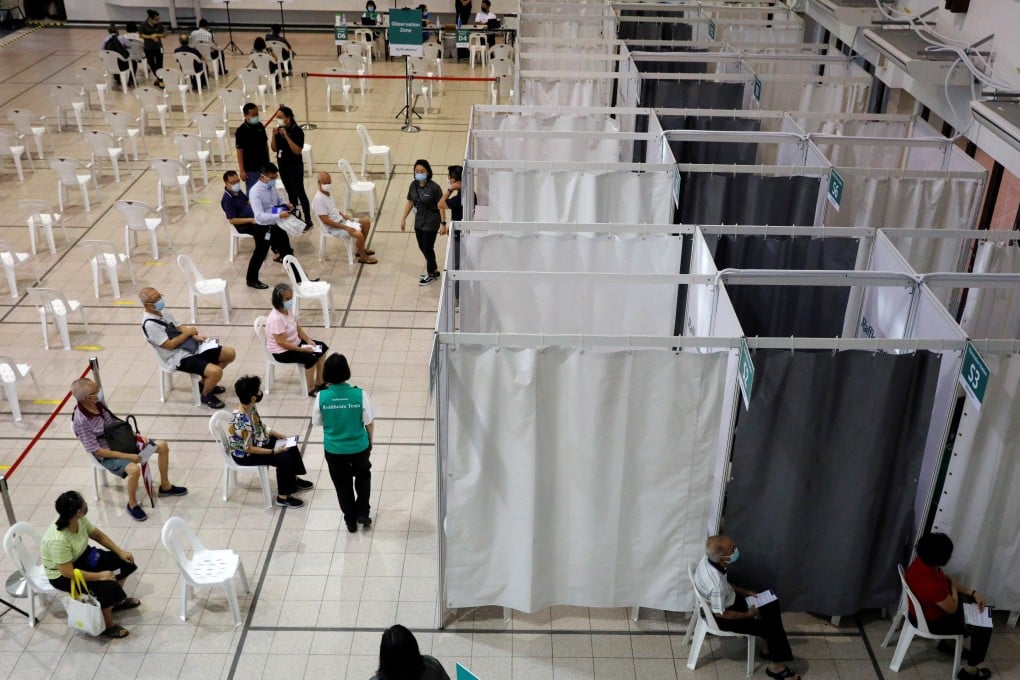Coronavirus vaccine: in Singapore, 432 report side effects but experts ‘reassured’
- More than 113,000 people were given first dose of the Pfizer-BioNTech vaccine, after which 432 people suffered side effects, including three who had anaphylaxis
- Despite number of adverse reactions, experts say recipients were watching for unusual effects; fewer will be reported as vaccinations increase

The ministry said the three cases of anaphylaxis were “quickly resolved” by health care professionals, and had happened to individuals in their 20s and 30s who had a history of allergies, including allergic rhinitis and food allergies such as to shellfish. None had a history of anaphylaxis, which would have precluded them from the vaccine, and all have been discharged from hospital after a day’s observation or treatment.
This puts Singapore’s incidence rate of anaphylaxis at about 2.7 per 100,000 doses administered, compared with other jurisdictions’ one to two per 100,000 doses administered. The ministry said initial variations in the incidence rate were expected given the numbers vaccinated in the island nation were relatively small.
Dr Jeremy Lim, an associate professor at the National University of Singapore’s Saw Swee Hock School of Public Health, lauded the country for being transparent with the data of adverse effects to the vaccine.

09:50
SCMP Explains: What's the difference between the major Covid-19 vaccines?
He said the three anaphylaxis cases highlighted that the reaction could actually be effectively managed without long-term complications when strong medical facilities were within easy access, and added that incidence rates in Singapore were likely to look similar to other jurisdictions when vaccinations were scaled up.